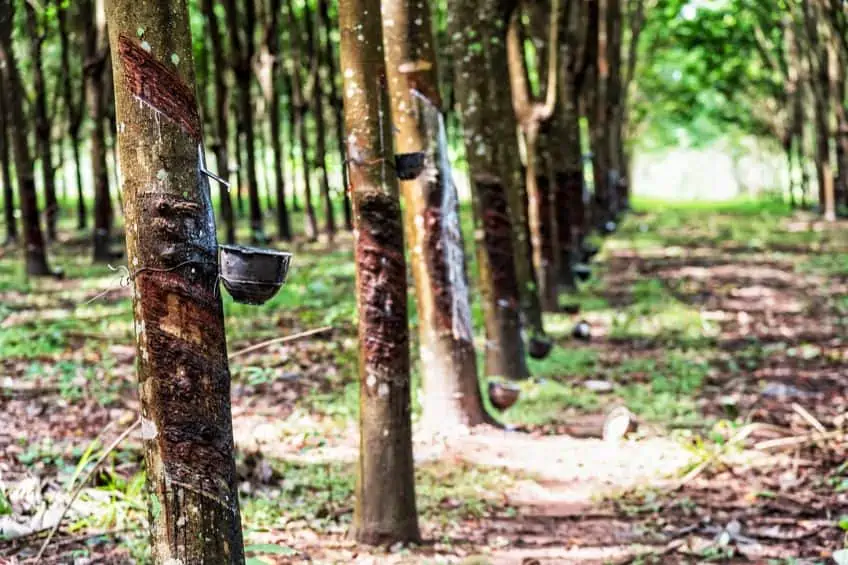In today’s world, sustainability has become an imperative consideration in every industry. Companies are increasingly seeking ways to minimize their environmental impact and contribute to a greener future. Unilin, a leading innovator in our industry, has taken a remarkable step towards sustainability by recycling rubberwood trees that were destined for destruction. In this blog, we explore the inspiring story of Unilin’s recycling efforts and the positive impact it has made on the environment.
The Rubberwood Conundrum:
Rubberwood trees, also known as Hevea brasiliensis, are primarily cultivated for their latex production, which is used to manufacture various rubber-based products. However, these trees have a limited lifespan for latex extraction, typically around 25-30 years. Once they reach the end of their productivity, rubberwood trees are often burned down to make space for new plantations. A process that contributes to deforestation and releases harmful greenhouse gases into the atmosphere.
Unilin’s Vision for Sustainability:
Unilin, a leader renowned for its innovative flooring solutions, recognized the environmental impact caused by the destruction of rubberwood trees. With a strong commitment to sustainability, the company embarked on a mission to find a better solution. One that would transform the fate of these trees and contribute positively to the planet.
The Unilin Recycling Initiative:
Unilin developed an innovative and sustainable solution by implementing a comprehensive recycling initiative for rubberwood trees. Instead of burning down these trees, Unilin partnered with local communities and farmers to salvage the wood and give it a new lease on life.
The Recycling Process:
Salvage and Selection: Unilin established a network of suppliers and farmers who identify and collect rubberwood trees that have reached the end of their latex production lifecycle. The wood is carefully selected based on quality and suitability for recycling.
Processing and Treatment: The collected rubberwood undergoes a thorough processing and treatment phase to remove impurities, such as bark and latex residue. This ensures that the recycled wood maintains its structural integrity and quality.
Manufacturing Flooring Products: The recycled rubberwood is then transformed into high-quality flooring products, utilizing Unilin’s cutting-edge manufacturing techniques. The wood is carefully engineered to provide excellent durability, stability, and aesthetic appeal.
Benefits of Unilin’s Recycling Efforts:
Environmental Preservation: Unilin’s recycling initiative significantly reduces deforestation and the release of greenhouse gases associated with burning rubberwood trees. By giving these trees a second life, Unilin helps preserve the natural ecosystem and minimizes its carbon footprint.
Resource Conservation:
Equally important recycling rubberwood reduces the demand for fresh timber, conserving valuable natural resources. Unilin’s commitment to sustainability extends beyond its recycling efforts. As the company also implements responsible forestry practices to ensure a sustainable supply chain.
Social and Economic Impact: Unilin’s partnership with local communities and farmers fosters economic development by creating employment opportunities. Moreover, the recycling initiative promotes social responsibility and strengthens the bond between Unilin and the communities it operates in.
Unilin’s dedication to sustainability and innovative thinking have turned a potential environmental concern into an inspiring success story. Through its recycling initiative for rubberwood trees, Unilin has demonstrated that responsible business practices can lead to positive outcomes for both the environment and society. By salvaging and transforming rubberwood into high-quality flooring products, Unilin sets an example for other industries to embrace sustainable practices and actively contribute to a greener future.


